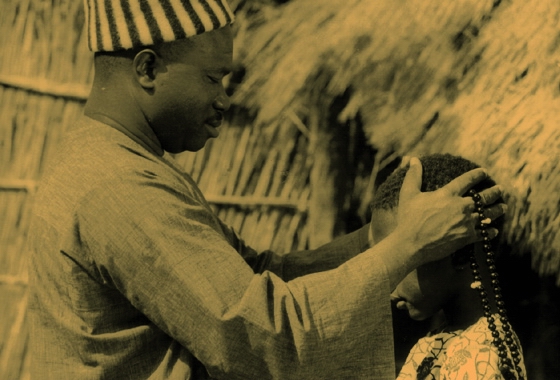Mahama Johnson Traoré
Director
Biography
Senegal
Traoré was born in 1942 in Dakar. The son of a businessman, Traoré studied in Senegal, Mali and France to be an electrical engineer. In Paris he quit his studies to follow a passion for film. There he enrolled in the Conservatoire libre du cinéma français, an avant-garde school inspired by current German and Italian cinema and the theoretical approaches of the French ORTF. Traoré became one of the premier filmmakers of the post-independence generation, associated with artists such as Ousmane Sembène. Traoré made a number of Wolof language films with strong social messages from the late 1960s to the early 1980s. Traoré was one of the founders in 1969 of the prestigious Pan-African Cinema Festival FESPACO, and the Carthage Film Festival. From 1975 to 1983 he was secretary general of the Pan-African Federation of Film-makers (Fédération panafricaine des cinéastes FEPACI). From 1983 to 1985 he was Director of the Société nationale de production cinématographique du Sénégal (SNPC). In all these offices he played a prominent role in the relations between African states and filmmakers. He was also founder, editor, and publisher of the PanAfrican arts magazine, Cahiers d’Afrique. Active with FESPACO and film making up until his death, in 2009 he was made Chevalier de l’Ordre des arts, des lettres et de la communication by the government of Burkina Faso. In July 2009, he served as a Jury Member at the Second Festival culturel panafricain d’Alger (PANAF). He died in March 2010, in Paris, France.
Biography Source
Filmography
Diankha-bi
(1969)
L’Enfer des innocents
(1969)
Diègue-Bi
(1970)
L’Étudiant africain face aux mutations
(1971)
L’Exode rural
(1971)
Lambaye
(1972)
Reou-taax
(1972)
Garga M’Bossé
(1974)
Njangaan
(1974)
Sarax si
(1980)
La médecine traditionnelle
(1982)


